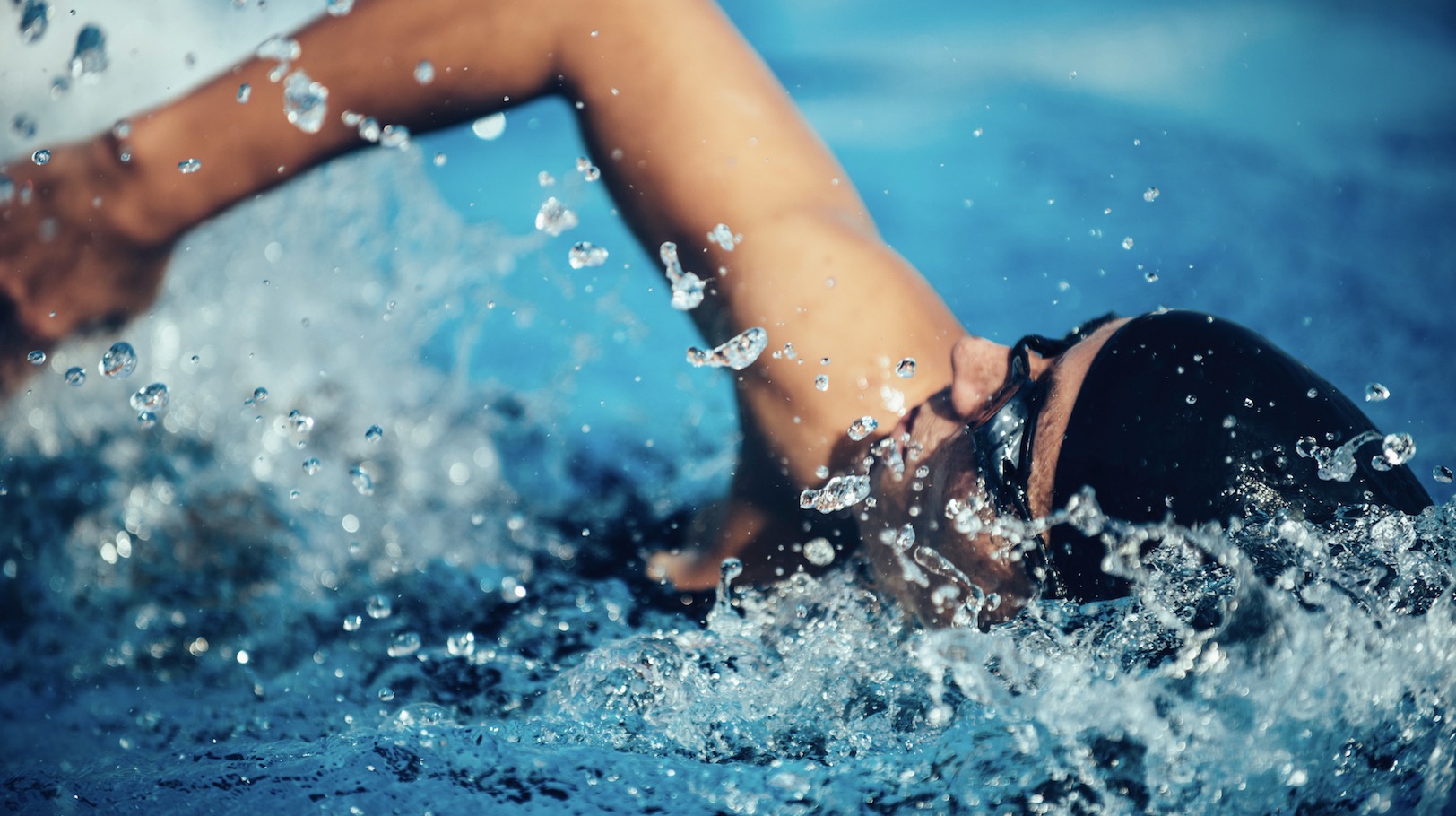
 It’s no secret that working out is good for your health. But swimming is unlike any other workout. It’s easy on the joints because of the low impact and evenly distributed weight. It’s great for strengthening the lungs because of deep inhales and slow exhales inherent in swim training. It improves posture and helps prevent back pain by strengthening core muscles. It’s fun. It’s refreshing.
It’s no secret that working out is good for your health. But swimming is unlike any other workout. It’s easy on the joints because of the low impact and evenly distributed weight. It’s great for strengthening the lungs because of deep inhales and slow exhales inherent in swim training. It improves posture and helps prevent back pain by strengthening core muscles. It’s fun. It’s refreshing.
We’ve always said that water keeps people young. Now we have the research to back it up. Researchers at Indiana University studied elite swimmers and measured physiological functional capacity over time. From their data, they found that regular and fairly intensive swimming substantially delayed the decline of such age markers as blood pressure, muscle mass, blood chemistry and pulmonary function.
The IUB researchers conducted a battery of tests on elite swimmers — United States Masters Swimmers competing in the U.S. championships in 2004 and in the FINA world championships at Stanford in 2006. They measured age markers, whose physiological functional capacity typically decline by 0.5 percent to 1 percent per year beginning around the age of 35, and compared their findings with similar data collected on the general population. From their 2004 data, they found that regular and fairly intensive swimming substantially delayed the decline of such age markers as blood pressure, muscle mass, blood chemistry, and pulmonary function.
“We’re starting to find out that a lot of the decline (in health) is probably related to a decline in activity rather than aging per se,” said Stager, a professor in IUB’s Department of Kinesiology. “The hypothesis is that activity preserves physiological function.”
The researchers found that by regularly swimming 3,500 to 5,000 yards (roughly 2 to 3 miles) three to five times a week, the USMS swimmers examined in 2004 postponed the aging process, not only for years but for decades. They found that many of the swimmers delayed this natural decline until the age of 70. Stager, who also competed at the FINA Masters World Championships this summer, is an avid swimmer himself, swimming roughly 3,000 yards per day five times a week. For recreational swimmers, any amount of swimming is beneficial, he said, particularly for the least active. A workout should depend on goals, such as preparing for competition, improving fitness or seeking health and well-being benefits.
“The health and well-being benefits start with a minimal amount of swimming,” Stager said. “If you want the fitness effect, you’ll need to look at getting your heart rate up and boosting the intensity.”
Swimming in the Fountain of Youth
by Jeanne Johnston, assistant professor in the Department of Kinesiology
Even recreational swimmers can greatly benefit from even a minimal amount of swimming. If you want to take advantage of the numerous health benefits of swimming, you need to develop a regular swim workout routine. What better way than to have a pool in your own backyard. If you want to have a pool in your own backyard, well, you know who to call.







